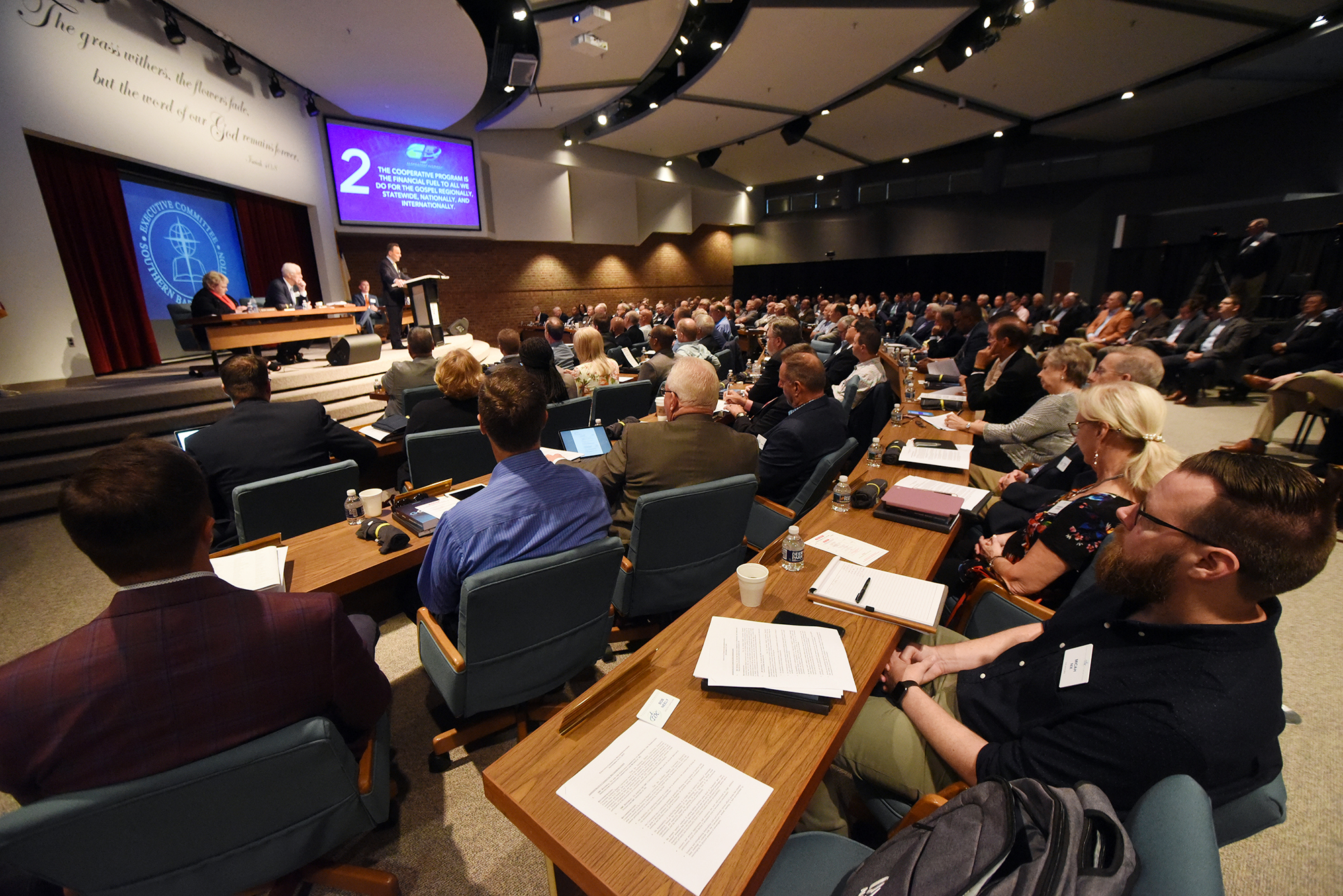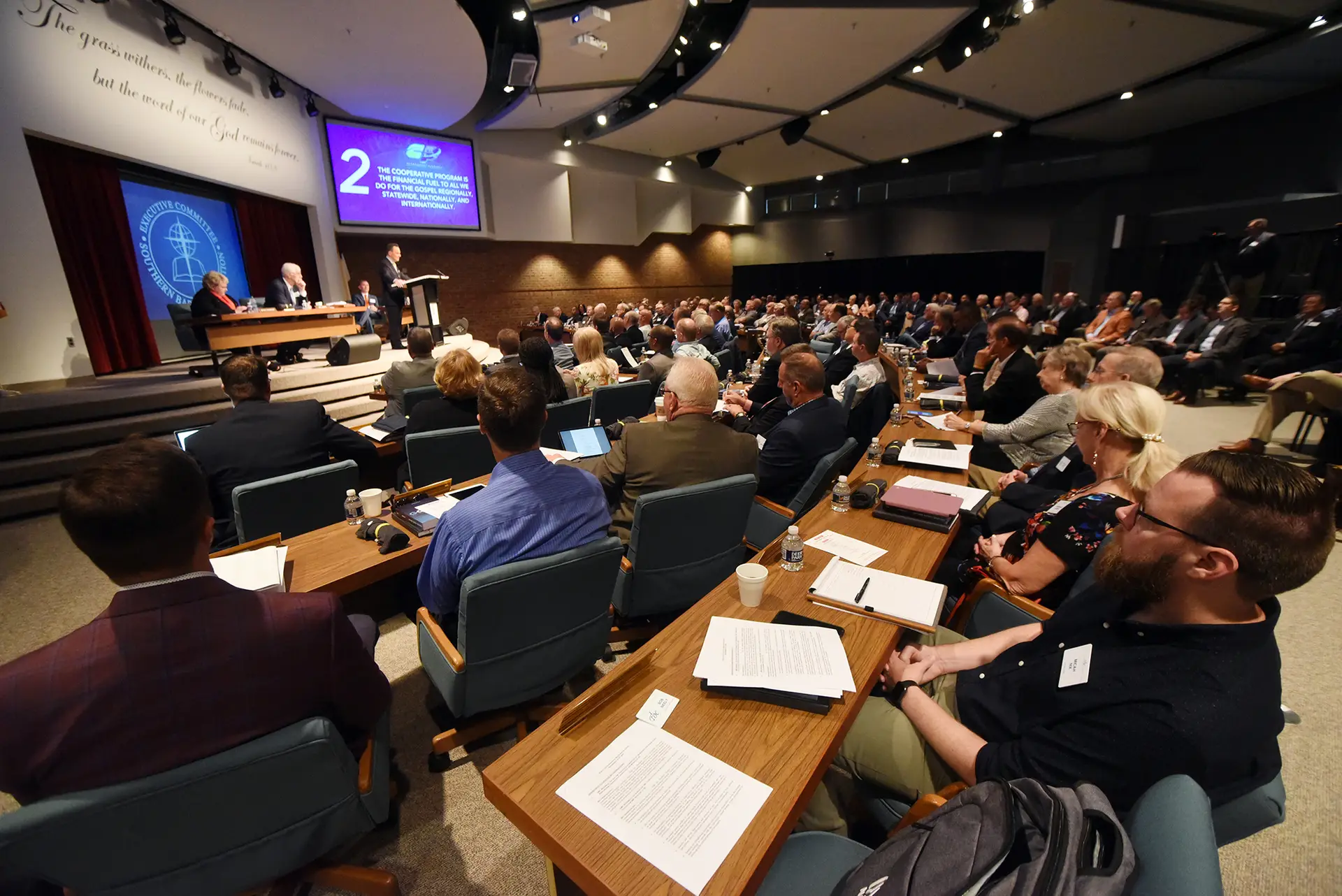GRAPEVINE, Texas (BP) — If history is any indication, the Southern Baptist Convention’s trustee system will continue without a snag despite the cancellation of the 2020 annual meeting due to COVID-19. The last annual meeting cancellations, during World War II, were followed by a boom of evangelism and discipleship resourced by the convention’s entities.

Still, the unique circumstances this year create some potential challenges for a convention reliant on annual trustee elections.
Across the 12 SBC entities (including the Executive Committee), the terms of 129 trustees are scheduled to expire in 2020, according to last year’s SBC Annual. Typically, the convention would elect Southern Baptists to fill those slots based on nominations from the SBC Committee on Nominations. This year, that isn’t possible. Until the convention can convene, how to handle the open trustee slots is defined by a combination of SBC governing documents, entity charters and state laws where each entity is headquartered.
“We have a rotating system” of entity trustees, SBC Recording Secretary John Yeats said. “As a result, missing a year of being able to elect brand new trustees as a convention shouldn’t hinder us.”
The TEXAN queried the trustee chairs of all SBC entities to see how each board is handling its vacancies created by members rotating off this year.
Based on applicable state laws and entity charter provisions, current trustees of 10 entities remain in office until their successors are elected — even if their terms have expired. Some of those trustees are extending their first terms and likely will be elected to second terms at the 2021 SBC annual meeting in Nashville. Others already have completed two terms and will be replaced next year.
The other two entities — GuideStone Financial Resources and The Southern Baptist Theological Seminary — have charters that require trustees to rotate off the board when their terms end, even if no successor has been elected. Both entities’ board chairs said trustees plan to make interim appointments to fill vacant slots until the 2021 SBC annual meeting.
The charters of all but three entities — the Executive Committee, the International Mission Board and the North American Mission Board — permit interim trustee appointments by the board when a position is vacant. Those interim appointees serve until the next SBC annual meeting. New Orleans Baptist Theological Seminary is the only entity to exercise that option so far, appointing Phil Hanberry of Mississippi in April to fill the unexpired term of a trustee who resigned.
One intriguing possibility for a missed annual meeting involves the Executive Committee. SBC policy analysts debate whether the convention’s bylaws permit the EC to elect entity trustees on the convention’s behalf. SBC attorney Jim Guenther said “it is clear the Executive Committee could not elect trustees of some of the entities of the convention because of the wording of their charters.” But even for entities where it might be permissible, EC chairman Mike Stone gave no indication the committee will seek to elect trustees.
In general, the anticipated result of this year’s trustee board actions, Stone said, is that “current trustees remain in place until June 2021.”
Despite well-defined policies for missed annual meetings, some challenges remain.
Smaller states and defined territories will lose representation on some boards temporarily if their lone representative is forced to rotate off without an immediate replacement. At GuideStone, for instance, the sole representatives from California, Colorado, Illinois, Louisiana and Maryland/Delaware/the District of Columbia all are slated to rotate off the board this month. Southern Seminary’s lone trustee from Ohio likewise rotates off the board this month.
Another potential concern is that SBC messengers won’t have an opportunity this year to amend the list of nominees to trustee boards. Messengers exercised that prerogative in 2018, when they granted Ethics & Religious Liberty Commission trustee Dan Anderson a second term despite the Committee on Nominations’ recommendation to fill his slot with someone else.
In the absence of an annual meeting, it is especially important that trustees recall their accountability to the convention and that the convention recalls its dependence on the trustee system, said Jimmy Draper, president emeritus of LifeWay Christian Resources and a former SBC president.
Southern Baptists must not “become distanced from the trustees,” Draper said. Trustees must not “become isolated on their own, working with the entities, and lose their sense of responsibility to the convention.”
Yet Southern Baptists need not worry about a year of missed trustee elections, Draper said, “because we are proceeding based on what we are allowed to do.”
History suggests Southern Baptists are up to the challenge. Since the SBC began meeting annually in 1866, it had previously only missed two scheduled meetings (due to World War II reductions of available food and lodging, among other factors). In each instance, the SBC Annual records that trustees extended their service for an additional year, with vacancies filled temporarily by the various boards.
Yeats said those missed annual meetings were followed by a boom of “new post-war, born-again disciples for Christ and a passion for the church to permeate culture with a biblical worldview.” Between 1945 and 1962, membership in Southern Baptist churches increased 74 percent to 10.2 million and annual gifts through the Cooperative Program increased 411 percent to $53.5 million, according to Albert McClellan’s history of the Executive Committee.
Such historical realities remind Southern Baptists, Yeats said, that the trustee system can be a powerful tool for facilitating Gospel witness, even when annual elections prove impossible.
“In some ways,” Yeats said, “the [coronavirus] pandemic has set Southern Baptists free to make the Gospel above all in every context.”
David Roach is a writer in Nashville.
This article was originally published by Baptist Press at bpnews.net

